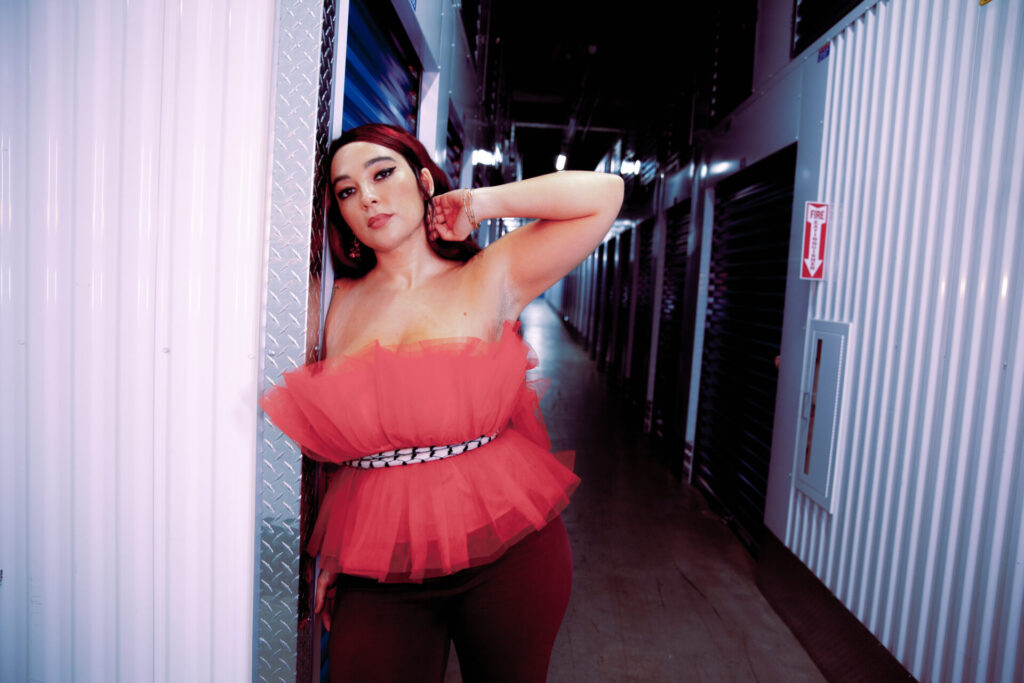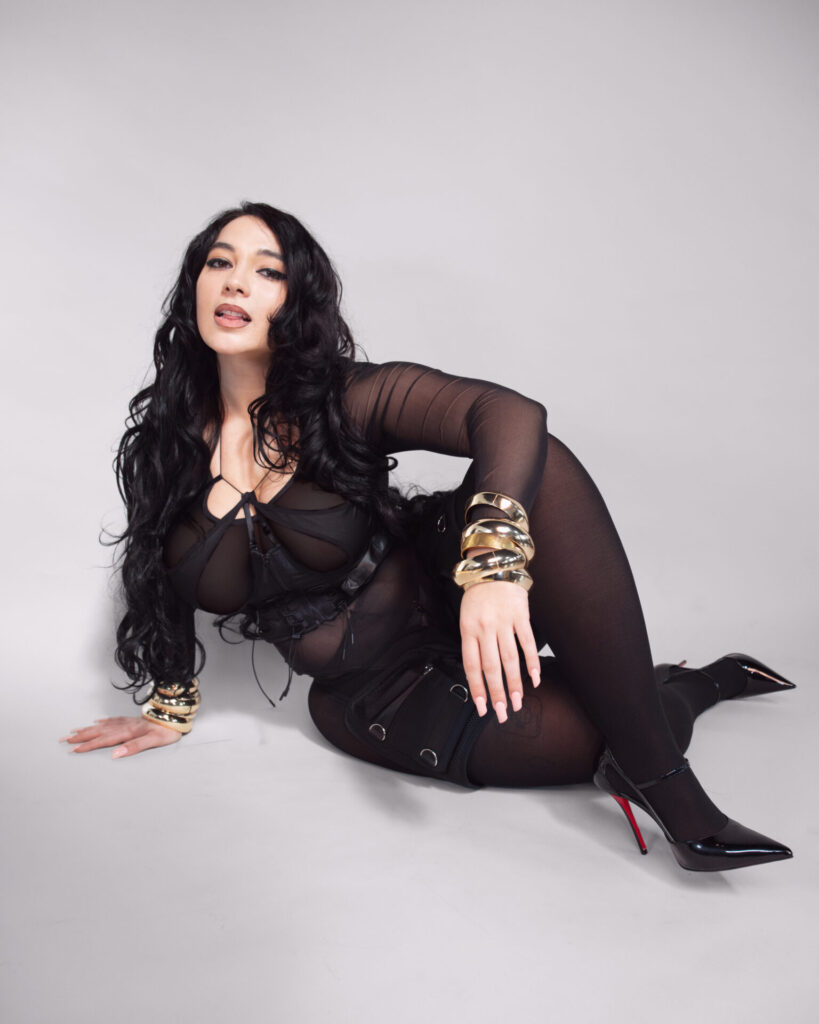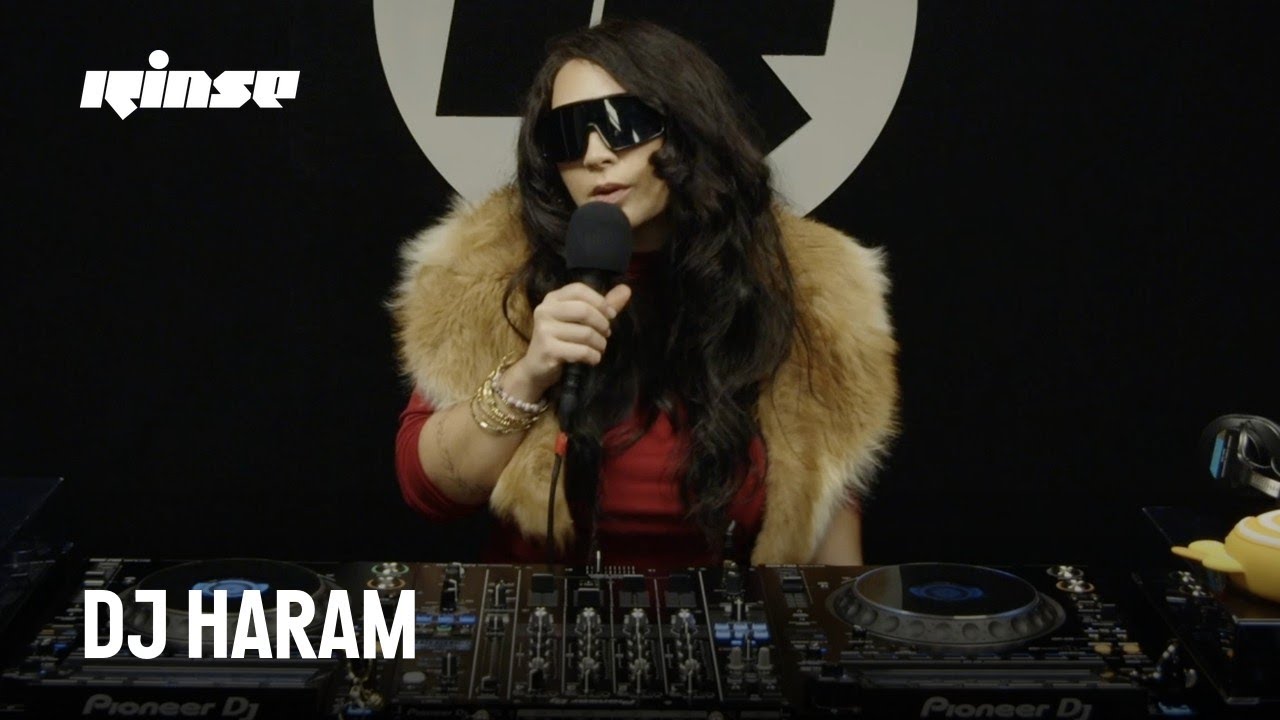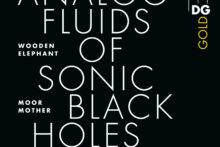DJ Haram and I are sitting on a sunny spring day in a coffee shop near her Brooklyn neighbourhood, talking shit. “I’ve had to recognise over the past couple of years that I actually do like to fight,” she laughs. This energy powers much of her long-awaited debut album, Beside Myself, seemingly designed not so much to set the dancefloors on fire as to burn a few bridges. Gone, mostly, are the precision-detonated, arabesque drums that established her as a peer of any of her Hyperdub labelmates. What’s left are smouldering field recordings, a haunted loop of melody, and her voice, which variously twists in pitch or speed and then makes itself very, very clear. “Fuck these allies,” she declares on ‘Distress Tolerance’, released today. “They only love me when I beg for forgiveness.”
Over a piece of cake, she elaborates. “When I say that,” she says, “I mean that you should be invested in your own liberation too. Popular politics say, ‘let’s fetishise Palestinians, people at the highest intersections of oppression’. But social justice movements aren’t curious about the actual personal connections people have. A lot of this has to do with how Arab and Middle Eastern and Muslim countries are not really legible here.”
Born Zubeyda Muzeyyen and raised in the Passaic County of northern New Jersey, Haram grew up surrounded by the sound of the Middle Eastern diasporic music her parents favoured, the burgeoning Jersey club scene, and New York’s DIY community. Instead of going to college, she educated herself in movements like Students for a Democratic Society and Occupy Wall Street, then moved to Philadelphia and found her place in that city’s vibrant noise and improv networks. All of this is legible in the DJ sets she developed, which balance finger-tingling skills and fine-tuned ears with a mischievous, perhaps revolutionary, urge to desync the role of the DJ from, say, that of hedonism advocate.
“One of the reasons I chose to pursue DJing was because I wanted to learn how to make music, but I had no formal training,” she says. “Live music and improv are what I connected to first. I was kind of freestyling adult life. And being a DJ meant intentionally listening. I could make my job studying music, and therefore I could learn how to make it myself.” In ten years, she graduated from playing house parties to headlining clubs from Detroit to Dubai, and platforming mixes on major players like Resident Advisor and FACT.
During that time, she saw the job change. “To DJ, you have to do a lot of work,” she says. “I’m not talking about crate-digging and learning about the history of music. I’m talking about knowing people so that they come to your shows. That kind of social labour. And self-promotion, marketing, content, establishing a brand identity. In the DJ world, the container is commercial. It’s about engaging with me because I can provide this ‘experience’ for you.”
That ‘experience’ is inextricable from identity. “I used to take a DJ gig and realise they booked me because they wanted some racialised, gendered representation and I had to be the person that gave that,” she says. “Those gigs aren’t paying well enough to do them anyway.” The gigs that do pay well often cost a little of an artist’s autonomy. She tells me a story of a big brand who tried to demand her setlist contain a certain percentage of a particular artist’s work. “Like a lot of my peers, I think capitalism is bad,” she says with a laugh. “But I need to put distance between me and my loved ones, and the poverty cycle.” And then there’s the news cycle. One of the first DJ gigs she played after 7 October was opening for a house DJ. “Afterwards, they said I didn’t play much Middle Eastern music. I thought, why would I? Your crowd doesn’t want that. And then I thought, ‘oh, maybe everybody wants that now’. Normally, the only people who say things like ‘you didn’t play enough Arab music’ are people from the diaspora, who thought they would come and have this familiar experience. But what if this is now about showing that someone is pro-Palestine, without them having to say anything?”

Fuck those allies, indeed. Anyway, all that studying paid off, turning Haram into a singular, if not always prolific, producer. In Philadelphia, she connected with the incomparable poet and musician Moor Mother, and the pair formed 700 Bliss and signed to Hyperdub. While the label waited for the two to finish their incendiary 2022 album Nothing To Declare, head Kode9 offered Haram the chance to put something out herself. “I was new as a producer, and I wanted to do something lower stakes than an album,” she says. The Grace EP in 2019 offered drums that swaggered like RZA and tangled like lace; 2023’s Handplay was equal parts banger and bewilderment. As her confidence grew, so did her passel of collaborators. “She’s very picky,” says Billy Woods, who’s worked with her on her records and on his own solo and Armand Hammer projects. “Her beats don’t sound like anything else. Sometimes they’re atonal, abrasive, hard. She really pours over it, and works so deep. She massages her beats, like dough.”
It took a couple of years, though, to scope the parameters of a full album. “I was having a hard time, because I realise that debut albums are a very big deal,” she says, noting the way they often offer a first-time/only-time burst of press and support. “And then the genocide started, and with the new political context, I didn’t really know how to put work out.” The label, which had experience with artists like Fatima Al Qadiri moving from music digestible as “global bass” into direct engagement with their own histories of political violence and war, let Haram chart her own path. “I learned piano,” she says, as evidenced on the dark, drifting ‘Who Needs Enemies When These Are Your Allies’. She made what she calls “all this weird, moody stuff.” Dance tracks, like the album’s ‘Loneliness Epidemic’, rattle off their grids, abject if still ecstatic. There’s no big wobble release, no peace on the horizon.
Instead, ‘Voyeur’, the first single from Besides, rises off the dancefloor into somewhere else entirely. Its fuzzy clank and propulsive, lurching percussion bring to mind industrial music; metal also rears its scuzzy head on ‘IDGAF’, given heft by guitarist Abdul Hakim Bilal. ‘Fishnets’ is a shiny link of slinky hip hop, with uproarious flows from MCs Bbymutha and Sha Ray. Haram remakes each of these genres, which have their own unique (and shitty) traditions of seizing upon Middle Eastern music for a little foreign flavour, in her own image. “People sometimes use foreign sounds. They get a ney and just let it sit there,” she says. “To the familiar ear, that’s really basic. I could just use the Aladdin theme song and get some belly dancing costumes in there and have a career as an influencer way bigger than my career as DJ ever was.” Instead, she’s taken the seeds of her previous work and spat them into dank, unwieldy, but fertile fields of noise. And here’s what sprouts: vines of skronky violin, darbuka nubs and spikes of breaks, blossoms of poetics which are beautiful if not precious.
Throughout Besides Myself, though, Haram’s relentless self-critique, familiar to those forged in leftist organising, counterbalances her calling out of her contemporaries. “I’m DJ Haram and I represent all these experimental Middle Eastern musicians,” she says. “I didn’t try to do that on purpose, but the way I was situated in lineups and rosters, it gave token.” Maybe this album is her plunking that token into a few different machineries and seeing what happens. “I resent that I have to fight,” she continues. “But the other options are laying down and dying. Engaging the genocide… I’m making songs that have nuanced emotion. I’m beside myself with rage. I don’t want to make a 130 BPM club track so people can play it and say an Arab person made it and thus dancing to it is resistance. No. Stop. Leave me out of that.” She scoffs, and it sounds like rhythm.
DJ Haram’s new album Beside Myself is released on 18 July via Hyperdub. She performs on 11 October at Krakow’s Unsound Festival, and on 7 November at Le Guess Who? in Utrecht.






